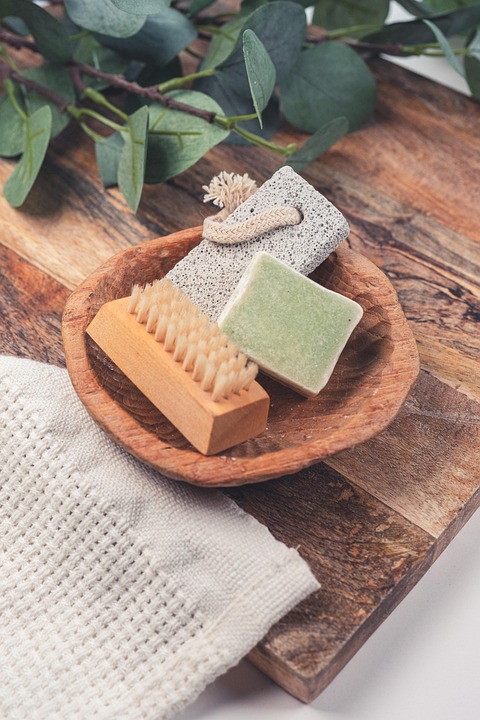Introduction to Healthy Hydration Habits
Water is the essence of life, and staying hydrated is crucial for maintaining good health. Drinking enough water can boost your energy levels, improve your skin texture, and help with weight loss. However, many people struggle to drink enough water throughout the day. Developing healthy hydration habits can have a significant impact on your overall well-being. In this article, we will discuss the importance of hydration, how to drink more water, and provide tips to help you boost your energy levels.
Why is Hydration Important?
Hydration is essential for every function in the body, from regulating body temperature to aiding digestion. Even mild dehydration can cause symptoms such as headaches, fatigue, and difficulty concentrating. Water makes up approximately 60% of our bodies, and it plays a crucial role in many bodily functions, including:
- Regulating body temperature
- Transporting nutrients and oxygen to cells
- Removing waste products
- Maintaining healthy skin, muscles, and joints
- Supporting kidney function
How Much Water Should You Drink?
The amount of water you should drink daily is a common debate. The general recommendation is to drink at least eight 8-ounce glasses of water per day, which is approximately 2 liters. However, this can vary depending on your age, sex, weight, and level of physical activity. For example, athletes or individuals who work outdoors may need to drink more water to stay hydrated.
Tips to Help You Drink More Water
Developing healthy hydration habits can be challenging, but there are several tips to help you drink more water throughout the day. Here are some suggestions:
- Start your day with a glass of water: Begin your day by drinking a glass of water as soon as you wake up. This will help rehydrate your body after a night of sleep.
- Keep a water bottle with you: Carry a water bottle with you throughout the day to remind you to drink more water.
- Infuse your water: Add slices of lemon, lime, or cucumber to your water to give it a refreshing taste.
- Make it a habit: Make drinking water a habit by doing it at the same time every day, such as when you brush your teeth or take a break at work.
- Monitor your intake: Use a hydration app or a physical log to track your water intake and stay motivated.
How to Boost Your Energy Levels
Drinking enough water can have a significant impact on your energy levels. Even mild dehydration can cause fatigue, headaches, and difficulty concentrating. Here are some tips to help you boost your energy levels:
- Drink water before exercise: Drinking water before exercise can help improve your performance and reduce the risk of dehydration.
- Avoid sugary drinks: Sugary drinks can cause a rapid spike in energy followed by a crash, leaving you feeling tired and sluggish.
- Eat hydrating foods: Include hydrating foods such as watermelon, cucumbers, and celery in your diet to help you stay hydrated.
- Get enough sleep: Aim for 7-8 hours of sleep per night to help your body recharge and feel more energized.
Common Mistakes that Can Dehydrate You
There are several common mistakes that can dehydrate you, including:
- Not drinking enough water: Failing to drink enough water throughout the day can lead to dehydration.
- Drinking too much caffeine: Excessive caffeine consumption can act as a diuretic, causing you to lose more water than you take in.
- Eating too much salt: Consuming high amounts of salt can cause your body to lose water and become dehydrated.
- Not adjusting to climate changes: Failing to adjust your hydration habits to changes in climate, such as traveling to a hot and humid environment, can lead to dehydration.
Staying Hydrated in Different Environments
Staying hydrated can be challenging in different environments, such as:
- Outdoor activities: When engaging in outdoor activities, such as hiking or biking, it’s essential to drink more water to stay hydrated.
- Traveling: Traveling to new environments can disrupt your hydration habits. Be sure to drink plenty of water during flights and in new environments.
- Working outdoors: Individuals who work outdoors, such as construction workers or landscapers, need to drink more water to stay hydrated and avoid heat-related illnesses.
Conclusion
Developing healthy hydration habits is essential for maintaining good health and boosting your energy levels. Drinking enough water can improve your skin texture, aid digestion, and help with weight loss. By following the tips outlined in this article, you can drink more water and stay hydrated throughout the day. Remember to start your day with a glass of water, keep a water bottle with you, and monitor your intake to ensure you’re drinking enough water.
FAQs
- Q: How much water should I drink per day?
A: The general recommendation is to drink at least eight 8-ounce glasses of water per day, which is approximately 2 liters. However, this can vary depending on your age, sex, weight, and level of physical activity. - Q: What are the symptoms of dehydration?
A: Symptoms of dehydration can include headaches, fatigue, difficulty concentrating, dry mouth, and dark urine. - Q: Can I get enough water from other fluids, such as juice and soda?
A: While other fluids can contribute to your daily water intake, it’s essential to drink plain water to stay hydrated. Juice and soda can be high in sugar and calories, and may not provide the same hydration benefits as water. - Q: How can I stay hydrated during exercise?
A: Drinking water before, during, and after exercise can help you stay hydrated. Aim to drink 17-20 ounces of water 2-3 hours before exercise, and 7-10 ounces of water every 10-15 minutes during exercise. - Q: Can drinking water help with weight loss?
A: Yes, drinking water can help with weight loss. Water can help suppress appetite, improve metabolism, and increase satiety, leading to weight loss.


